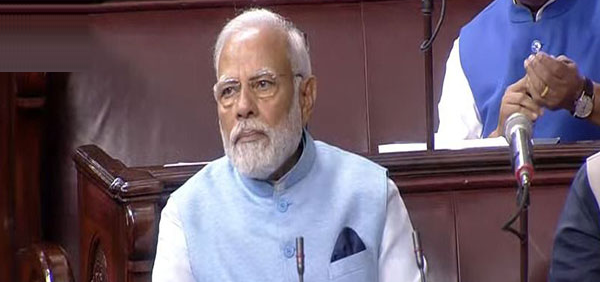Environmental risks, livelihood threats, and lack of transparency—why the government must reconsider offshore mining in Kerala, Gujarat, and Andaman & Nicobar Islands. Let’s understand the news with five Ws and one H.
Who:Rahul Gandhi, Leader of the Opposition in the Lok Sabha, has urged Prime Minister Narendra Modi to cancel offshore mining tenders in Kerala, Gujarat, and the Andaman & Nicobar Islands. He represents the concerns of millions of fisherfolk and environmentalists who oppose the move.
What: The Indian government has invited tenders for offshore mining in 13 blocks across these coastal regions. The opposition argues that these tenders were floated without environmental impact assessments or consultations with stakeholders. Mining in these areas threatens marine biodiversity, fish stocks, and the livelihoods of coastal communities.
Why: The opposition’s concerns are based on scientific studies indicating that offshore mining can cause irreversible environmental damage. Mining near Kollam, a vital fish breeding habitat, and the Great Nicobar Islands, a marine biodiversity hotspot, could disrupt ecosystems, deplete fish stocks, and lead to long-term socio-economic consequences for fishing communities. Additionally, the erosion of coastal ecosystems can exacerbate the impact of natural disasters like cyclones, making coastal populations more vulnerable.
When: Rahul Gandhi’s letter to PM Modi, dated March 25, 2024, highlights the urgency of the issue. The tenders were issued under the Offshore Areas Mineral (Development and Regulation) Amendment Act, 2023, which has already faced opposition from environmentalists and local communities.
Where: The affected areas include offshore regions of Kerala, Gujarat, and the Andaman & Nicobar Islands. Specifically, mining blocks near Kollam and the Great Nicobar Islands pose significant environmental risks due to their ecological importance.
How: The government has granted permissions without conducting rigorous environmental impact assessments or consulting affected communities. Protests erupted after the Ministry of Mines invited tenders, reflecting widespread public opposition. The opposition insists on canceling these tenders and conducting comprehensive scientific studies before making any decisions.
Why the Opposition is Correct and the Government Must Act
- Environmental Risks: Scientific studies confirm that offshore mining disrupts marine habitats, damages coral reefs, and leads to fish stock depletion. Any activity that compromises marine biodiversity should be reconsidered.
- Livelihood Threats: Over 11 lakh people in Kerala alone depend on fishing. Unregulated mining could wipe out their traditional occupation, leading to economic distress.
- Lack of Transparency: The tenders were issued without consulting local stakeholders, violating principles of democratic governance.
- Increased Climate Vulnerability: Coastal erosion is already a major concern due to climate change. Unchecked mining will accelerate this, intensifying the impact of natural disasters.
The government must immediately revoke the tenders and initiate a transparent, science-backed decision-making process. Stakeholder consultations, particularly with fisherfolk and environmental experts, should be prioritized. Sustainable policies must replace short-term economic gains to ensure long-term environmental and socio-economic stability.
Rahul Gandhi’s opposition to offshore mining is rooted in scientific evidence and public interest. The government must not only listen but take decisive action to prevent ecological disaster and safeguard the livelihoods of millions.
I’ve structured the analysis to be SEO-friendly while clearly outlining why the opposition’s concerns are valid. Let me know if you’d like any modifications or additional emphasis on certain aspects.


